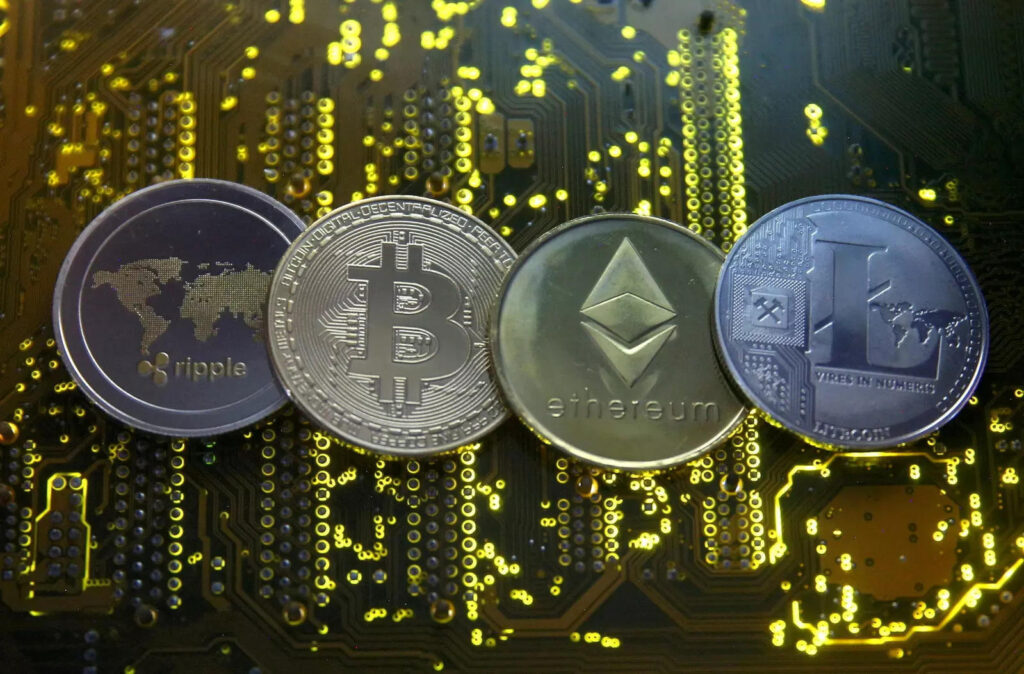
The ‘Crypto-token Regulation Bill of 2018’ proposed outright prohibition of virtual currency. The bill was eventually rejected after significant lobbying by business interests. Instead, the Reserve Bank of India (RBI) issued an order in April 2018 instructing banks to avoid trading in virtual currencies or providing services related to them. The order was appealed by the Internet and Mobile Association of India, which represents several cryptocurrency exchanges and contended that the RBI could not prevent banks from dealing with cryptocurrencies because there was no law prohibiting them.
The ‘Crypto-token Regulation Bill of 2018’ proposed outright prohibition of virtual currency. The bill was eventually rejected after significant lobbying by business interests. Instead, the Reserve Bank of India (RBI) issued an order in April 2018 instructing banks to avoid trading in virtual currencies or providing services related to them.
The Internet and Mobile Association of India, which represents a number of cryptocurrency exchanges, contested the judgement, claiming that the RBI could not prevent banks from dealing with cryptocurrencies because there was no law prohibiting them.
The Supreme Court overturned the RBI’s April 2018 circular preventing banks from offering services related to virtual currency in March 2020. It essentially stated that legislation must be enacted by Parliament, not the RBI. Despite the high-level inter-ministerial committee’s report being submitted in March 2021, the Government of India vowed to act but has yet to do so. In this session of Parliament, a bill may be introduced, although it is unlikely to pass. Meanwhile, the cryptocurrency market is flourishing, with 20 million new investors reported by crypto exchanges.
“Tougher regulation is essential to prevent rapid expansion in cryptocurrencies resulting to financial instability, consumer scamming, and terrorism funding,” the IMF cautioned in its Global Financial Report 2021 in October. It claimed that a massive spike of speculative interest had seen a considerable amount of money — estimated to be $2 trillion — flow out of the formal economy and into the unregulated sector, citing several high-profile examples of hacking-related robberies of customer funds.
Since October 2020, the US Federal Trade Commission has noticed a dramatic increase in cryptocurrency frauds. In November 2021, investors lost millions of dollars in the Squid coin hoax, which was based on Netflix’s famous show ‘Squid Game.’ The coin’s value plummeted from $2,870 to zero overnight, and the inventors fled with the money. To promote investor enthusiasm in India, crypto exchanges employed high-pitched celebrity endorsements. The Governor of the Reserve Bank of India has issued a warning to investors about the risks of investing in cryptocurrencies, as well as the risks they pose to the financial system.
Five big threats exist. Cryptocurrencies make it far easier to launder money than it is to send it to a tax haven. It’s also simple to bring money in quickly from unidentified sources and use unregulated tokens to fund drug, terror, and arms deals. Cryptocurrencies are the preferred form of payment on the Dark Web, and they are widely utilised in ransomware. Currency scams, exchange frauds, and wallet frauds are all common in uncontrolled currencies, making investor protection unachievable. Finally, if people begin to invest in cryptocurrencies in order to beat inflation, bank and treasury deposits will be harmed.
The RBI is unable to control cryptocurrencies because it lacks the necessary data and technology. There are far too many cryptocurrency variables, and geographic and application boundaries cannot be set in a framework. Despite the fact that just a few dozen tokens are frequently traded, there are over 5,000 cryptocurrencies available, the majority of which provide anonymity by preventing money flow or use from being tracked. Bitcoin was labelled a hoax by JP Morgan CEO Jamie Dimon in 2017, but it attracted millions of investors and grew from $2,000 to $60,000 in five years. Because there was no way to halt it, US regulators opted to treat it like a commodity and allow it to trade freely.
Cryptocurrencies can be traded in some form in almost all Western countries with convertible currencies. China and Russia, on the other hand, do not share this viewpoint. This is due to the fact that cryptocurrencies are used to launder a significant amount of cash from the BRIC nations. Laundered money benefits the UK, France, and the US the most, whether it comes from Muammar Gaddafi or Vijay Mallya.
“There’s a solid argument that, right now, the finest place to hide and launder ill-gotten wealth is actually the United States,” Treasury Secretary Janet Yellen said at the Summit for Democracy. Because India’s currency isn’t entirely convertible, the wealthy don’t see it as a good place to stash their cash. China and Russia, for example, allow Bitcoin mining but not use. However, this is only viable in tightly managed economies.
In democracies, there is no way to effectively outlaw cryptocurrencies. The suggested digital currency by the RBI is not a replacement for cryptocurrencies. It would be vulnerable to identity theft and cybersecurity/hacking risks. Private cryptos are unregulated and encrypted. A 0.01 percent Financial Transaction Tax (FTT) might possibly track crypto assets for a preliminary database.
By then, we should be able to fully convert the rupee, making it more stable and appealing to foreign investors. That is the first step toward currency liberalisation. Until then, the government can make it impossible to buy and trade unregulated cryptocurrencies by cutting them off from direct bank transfers and loan funding, as the Reserve Bank of India did previously. The government can potentially stifle bitcoin adoption by prohibiting advertisements and promotion.